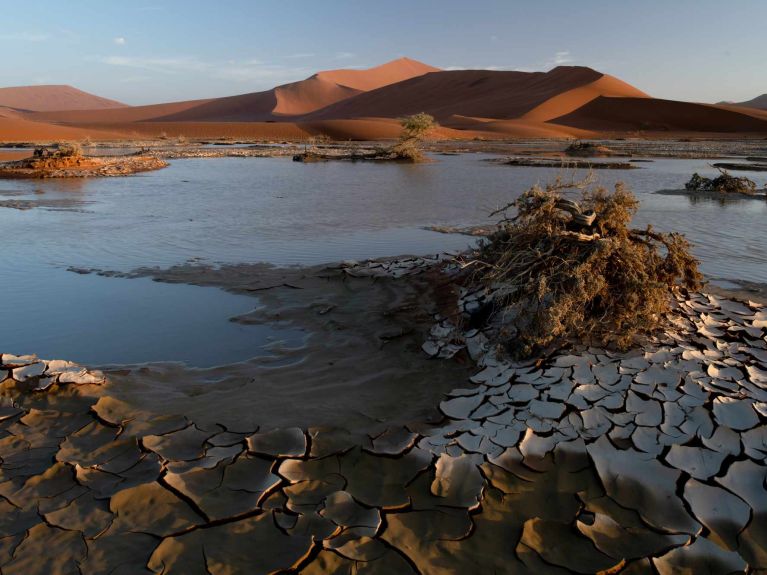“We must find solutions”
The climate crisis is necessitating some difficult partnerships. Human rights must be non-negotiable, says peace researcher Stefan Kroll.

Mr Kroll, can climate change be effectively tackled by a “coalition of democracies”?
A climate club of democratic states can certainly take the lead here and set an example. The Western industrialised countries also have a special responsibility in terms of climate justice. However, this will not be enough to combat the climate crisis. It will not be possible without countries such as China, which are responsible for a large proportion of emissions and which also have considerable weight in the international political sphere. One of the challenges for German climate diplomacy is to find ways to cooperate with non-democratic governments on managing global crises.
It is important to ensure that a compromise on climate issues does not involve any compromise on human rights.
What form could this cooperation take?
That is one of the key questions. However disappointing it may be that even the signatories to the Paris Climate Accord are so far failing to fully meet the targets to which they committed themselves, the agreement is nonetheless an existing global framework for fighting the climate crisis and it must continue to be used for this purpose. In addition, informal forms of cooperation such as in the G20 often proved effective in the past when it came to finding innovative political solutions to problems. However, it is also important to ensure in this context that a compromise on climate issues does not involve any compromise on human rights. Instead, it is about recognising that we have a common interest in tackling a shared threat and finding cooperative solutions.

Will climate change lead to more conflicts in the future?
The relationship between climate change and conflicts is complex, as climate change sparks conflicts in some cases and does not in others. The threat posed by climate change can also foster cooperation. The available research on the relationship between climate change and conflict has found that climate change has been one cause of conflict in the more recent past, but not the most important one. Social and economic factors weigh even more heavily at present. Having said that, climate change is expected to play an increasingly important role in causing conflicts in the future.
Is climate change a lasting crisis that will dictate political decision-making in the next few decades?
Yes, that is definitely the case. And in this sense academic definitions of crises do not entirely cover climate change, as they apply more to acute developments. Climate change is what is known as a latent crisis that in certain constellations manifests itself repeatedly in acute crises. It is the job of science to better understand and warn against these constellations, and it is the job of policymakers to take these warnings seriously and take them into account in their political decision-making processes, even if any successes they achieve as a result only become visible in the longer term.
Stefan Kroll is head of Science Communication at the Peace Research Institute Frankfurt (PRIF).
You would like to receive regular information about Germany? Subscribe here:


